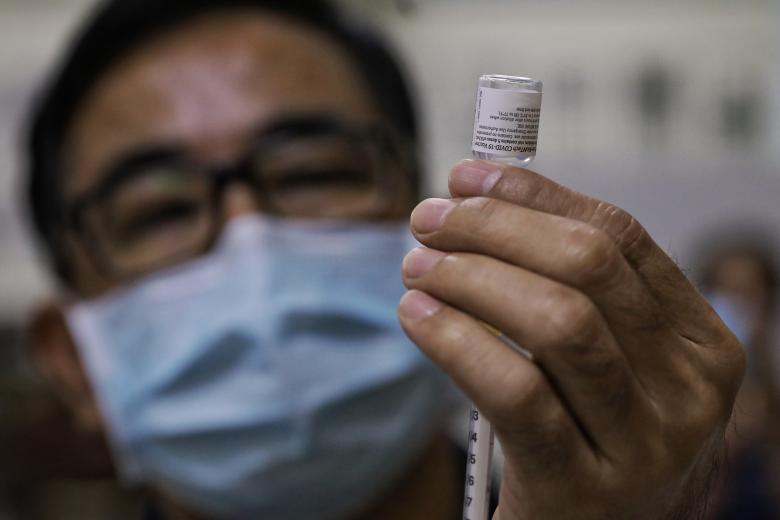SINGAPORE - A Singapore team of researchers is working on the next generation of mRNA vaccines that could have doses up to 100 times smaller than current ones and be cheaper to manufacture.
Some of the production technology advances will hinge on changing the shape of the genetic material in mRNA vaccines - the technology used in Pfizer and Moderna Covid-19 vaccines - with the researchers looking at replacing the use of straight strands of RNA in favour of the more stable circular RNA.
The Agency of Science, Technology and Research announced last week that a team from its Genome Institute of Singapore (GIS) and Institute of Bioengineering and Bioimaging, together with the National University of Singapore Yong Loo Lin School of Medicine, has been awarded a contract from an international health tech programme to manufacture circular RNA for mRNA vaccines.
The team is the only one from Asia, out of 17 teams worldwide, to be awarded a contract from the Wellcome Leap R3 Programme this year.
Wellcome Leap is a non-profit organisation founded by the Wellcome Trust to accelerate innovations that benefit global health.
Its R3 programme aims to build and deploy the next generation of RNA technology for future pandemics.
This includes the advancement of mRNA vaccines, which were introduced into mainstream use in 2020 to fight Covid-19.
Current mRNA vaccines rely on introducing the RNA molecule in string form into human cells to induce them into producing Covid-19 spike proteins, which trigger our immune system to mount a defence against the virus.
While highly effective, current RNA vaccine designs have several drawbacks, such as the need for low temperatures for transport and storage, high doses to be effective - 30 to 100 micrograms a dose - and high costs.
The Singapore project aims to address some of these shortcomings by developing circular RNA versions of the vaccine, which involves increasing and stabilising the amount of proteins produced per unit RNA. This would allow the dose to be reduced, in turn lowering the cost of the vaccine.
Dr Wan Yue, group leader of Laboratory of RNA Genomics and Structure and associate director of Epigenetic and Epitranscriptomic Systems at GIS, said: "By manufacturing circular RNA, we aim to reduce the cost of vaccine substantially because the circular design bypasses the need for capping of the RNA and for RNA modifications along the RNA - both of which are expensive due to the patents associated with them."
Furthermore, the higher stability of circular RNA means lower doses of RNA are required per shot for an equivalent immune response.
Dr Wan added: "The goal is to achieve hundredfold reduction of the dose required, so instead of 100mcg, it would be 1mcg."
For illustration, a single dose of Moderna's Covid-19 vaccine contains 100mcg of mRNA. Theoretically, by manufacturing circular RNA, the aim is that only 1mcg of mRNA would be required to mount an equivalent immune response.
The researchers hope this platform to manufacture circular RNA will be functional in three years for use as a fast and flexible system to generate RNA vaccines against coronaviruses and other pathogens locally.
Professor Patrick Tan, executive director of GIS, said: "Singapore is deeply involved in the global effort to develop RNA vaccines to fight both current and future pandemics.
"This is part of our GIS journey in developing world-class nucleic acid therapeutics capabilities in Singapore to build a fast and flexible system in our fight against different diseases."













